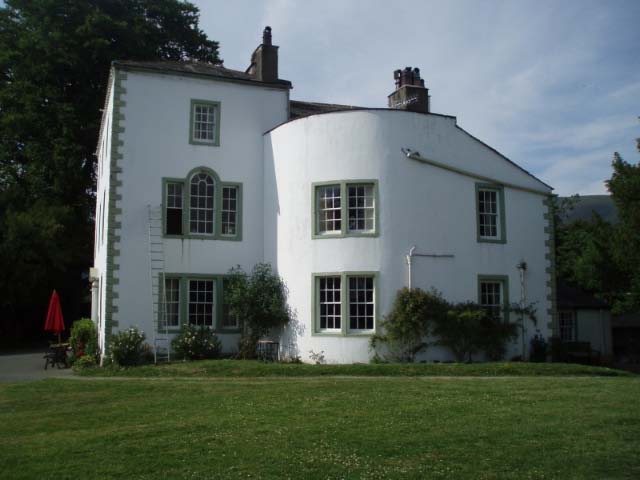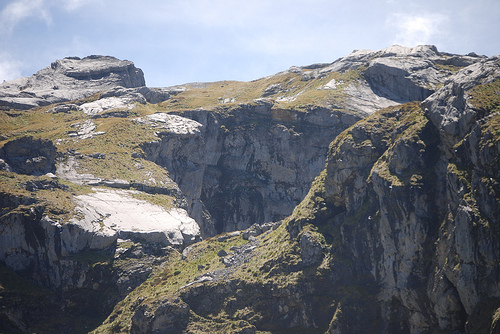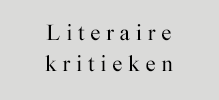Reportages
Op 7 oktober 2017 was het vijf jaar geleden dat Ivo Michiels overleed. Lars Bernaerts en Sigrid Bouset vroegen aan acht auteurs en aan zijn echtgenote om hun geliefde auteur sprekend in leven te houden.
Op zondag 8 oktober om 11 u. werd dit huldenummer van DW B ...
Alleen online: A Love Story of Books and Libraries. Part two
The sometimes painful choice for one???s absolutely indispensable library has become less of an issue in the digital, global era. Wallace Stevens, my sine qua non, lives in my office, in my study at home, and on my kindle. If only there was a downloadable version of Hans Faverey???s work. On the plane, on my way to London I read Robert Harris???s Fear Factor and on the express into town I bought and downloaded Julian Barnes???s Sense of an Ending for the long flight home. Literature Online, EEBO, ECCO, Project Gutenberg, Google Books allow me to go on sabbatical with most of the books which I need at my fingertips on one device. I annotate, search, and compare, all through one tablet. All of this does not in the slightest contradict my research in the British Library where I can actually see Coleridge???s annotated prospectus for his projected journal, The Friend, with Wordsworth???s letter to Bishop Wrangham about his own pamphlet on the Convention of Cintra on the adjoining sheet. Any scanned version of a text is just that one version, that snapshot of the text at the moment of recording. Access to the material object itself illuminates the layers of how people have interacted with it. Now we may be fretting over the contrast between the material and the digital book, but not all that long ago, the big deal was all about the printed book versus the manuscript. In the very early seventeenth century, when manuscripts still circulated far more commonly and in addition to printed books, John Donne wrote a delightful epistle entitled ???To my very learned friend Dr. Andrews. Concerning a printed book, which, when it was borrowed by him, was torn to pieces at his house by the children, and afterwards returned in manuscript.??? In the opening lines Donne generously does away with the embarrassing awkwardness of juvenile wanton destruction by celebrating the respectability of the manuscript over the fast production of the printed book: ???Damp from the press is born the current book, / But manuscripts wear a more reverent look.???
My life is punctuated by encounters with libraries or the ghosts of libraries. Take June 2008, for instance, a summer framed by the poets of the English Lake District. Our son, almost 6, learns to row on Derwentwater in Keswick. The sky is pewter, the water almost black, Dugal???s face is beaming. The exhilaration of control over the oars trembles throughout his young body. At night, exhausted, he falls asleep in the same room where Hartley and Derwent Coleridge used to slumber in 1802. We are living, briefly, in Greta Hall, a big, sturdy, unfussy house, built to accommodate books and children. 
Photo: Greta Hall, Keswick, June 2008 (Heidi Thomson)
Down the corridor the children???s father is dosing himself with laudanum and tormenting himself with visions of desire for the woman he could not have. His guilty notebook entries are heavily scored through. Downstairs Coleridge???s conscientious brother-in-law Robert Southey is churning out yet another biography, another travel account, another history, another endless poem. He writes for money, to support various dependent females, including Coleridge???s wife, and their children, far from the library resources of London. He builds up his own, hard-working library. Coleridge borrows, reads, and jots annotations in the margins. When Southey???s enormous library was sold in 1844, many tomes fetched very high prices, partly because of lay-about Coleridge???s brilliant marginalia. Books accumulate, reference books, catalogues, atlases, encyclopedia like the Dictionarium Rusticum, Urbanicum & Botanicum: or, a Dictionary of Husbandry, Gardening, Trade, Commerce, And all Sorts of Country-Affairs, in Two Volumes, Illustrated with a great Number of Cutts. 3d ed. (London, 1726), now housed in the Alexander Turnbull library in Wellington. Southey marks the entries he looks up with a light pencil mark in the margins. He contemplates the entry for ???shepherd??? for its emphasis on the patient, forbearing nature of the ???shepherd???s disposition???. He badly needs that kind of disposition himself, as all writers who also cater to the needs of others do. The house still bears the traces of its library. The worn floors are sagging, slanted by the weight of the books. The women of the household sewed calico protective covers for the books. We row, we read, and I write.
I look out of the window and I write about Wordsworth and Auden, and how they address both people and landscapes. Back in Wellington I pick up my rain damaged copy of Auden???s selected poems from the library shelf at home and my mind instantly revisits the New Zealand limestone landscape where I first read Auden???s ???In Praise of Limestone???. The karst around bleak Bulmer lake in the Mt Owen area, the site of a rain-soaked week-long caving trip in December 1991. The smell of carbide generators and of wet caving suits has penetrated the pages which are now redolent of limestone formations, not Auden???s Italian landscape of course, but the real and the literary landscapes informed each other. A limestone cave and a library trigger similar feelings in me; both exude a self sufficiency of beauty and pleasure.
Photo: Mt Owen ??? Bulmer (Jenny Black)
The result of all that subterranean exploration in the summer of 1991 was a re-assessment of my own library which had not only suffered extreme geographical displacement and dismemberment, but which by now also carried the reminders of a long-term relationship that had drawn to a close. One night, totally against my usual instinct of tender care for books (definitely pencil only, shudders over deliberately folded corners), I ripped out dozens of ex libris plates which had for a number of years marked shared ownership. A friend had produced a small woodcarving of a sailboat on tempestuous waves, with our initials and the motto which proved to be true of our love as well, ???panta rhei kai ouden menei??? (???everything flows and nothing remains???). It was an act of deliberate destruction I to this day strangely don???t regret; my own sense of amputation somehow extended into those beloved books. Of course I fell in love again ??? life is too short not to ??? and I knew things were good when my new love made lots of bookshelves for our now shared library.
Huge posters flashed by me when I was a little girl on the tram in the winter of 1971. ???Love means never having to say you???re sorry???; I thought that was an asinine copout even back then. I finally saw the pathetic tearjerker many years later and was inevitably disappointed, but I did like one scene: the start of the relationship in the Radcliffe library with Ali MacGraw as razor-tongued library assistant and Ryan O???Neill as preppy Harvard intruder. If I remember rightly the banter over the size of the Harvard collection compared with the Radcliffe one ends up in a coffee shop with MacGraw telling O???Neill ???I like your body???, which felt just right. Nothing beats an encounter in a library as the basis for a love story, for better or for worse. It is the perfect site for reading and misreading, for having all your expectations met in shared curiosity and probing, of books and each other, or for dangerously deluded idealizations. George Eliot???s master stroke in Middlemarch consists of Dorothea Brooke???s mistaking Casaubon???s self-defeating embalming by books for open-minded curiosity. Richard Powers??? use of the library Question Board, a feature I loved of the U of I library, in The Gold Bug Variations puts Jan O???Deigh and Franklin Todd on the same page. Galatea 2.2 elaborates on the consumption of a library by a machine. The library is a site of choices.
The treasures of the Alexander Turnbull Library, the materials I play with on a regular basis, remind us how insistently present these books, manuscripts, maps were to their makers and collectors, and what a privilege it is, for us, to spend some time with them. Emily Dickinson said as much in ???In a Library???, which opens with:
A precious, mouldering pleasure ???t is
To meet an antique book,
In just the dress his century wore
and concludes without definite conclusion, the way all reading should:
His presence is enchantment,
You beg him not to go;
Old volumes shake their vellum heads
And tantalize, just so.
Photo: Lisbon, February 2007 (Heidi Thomson)


%20the%20invisible%20XXVIII%2c%20100x80%20cm%2c%202014.jpg)



